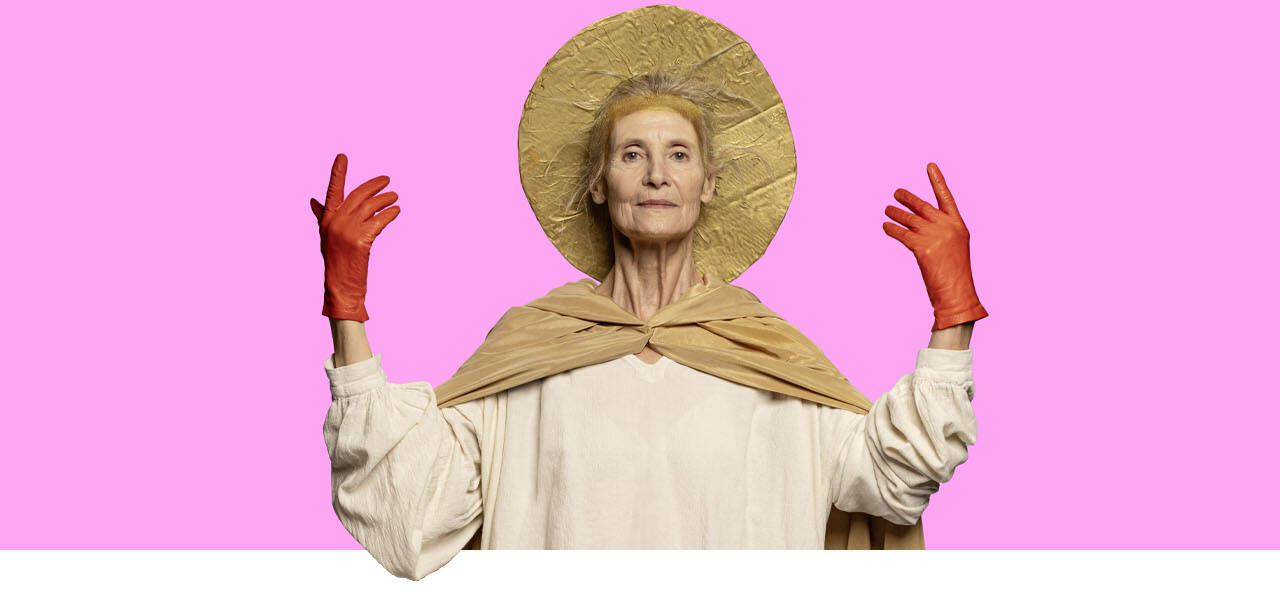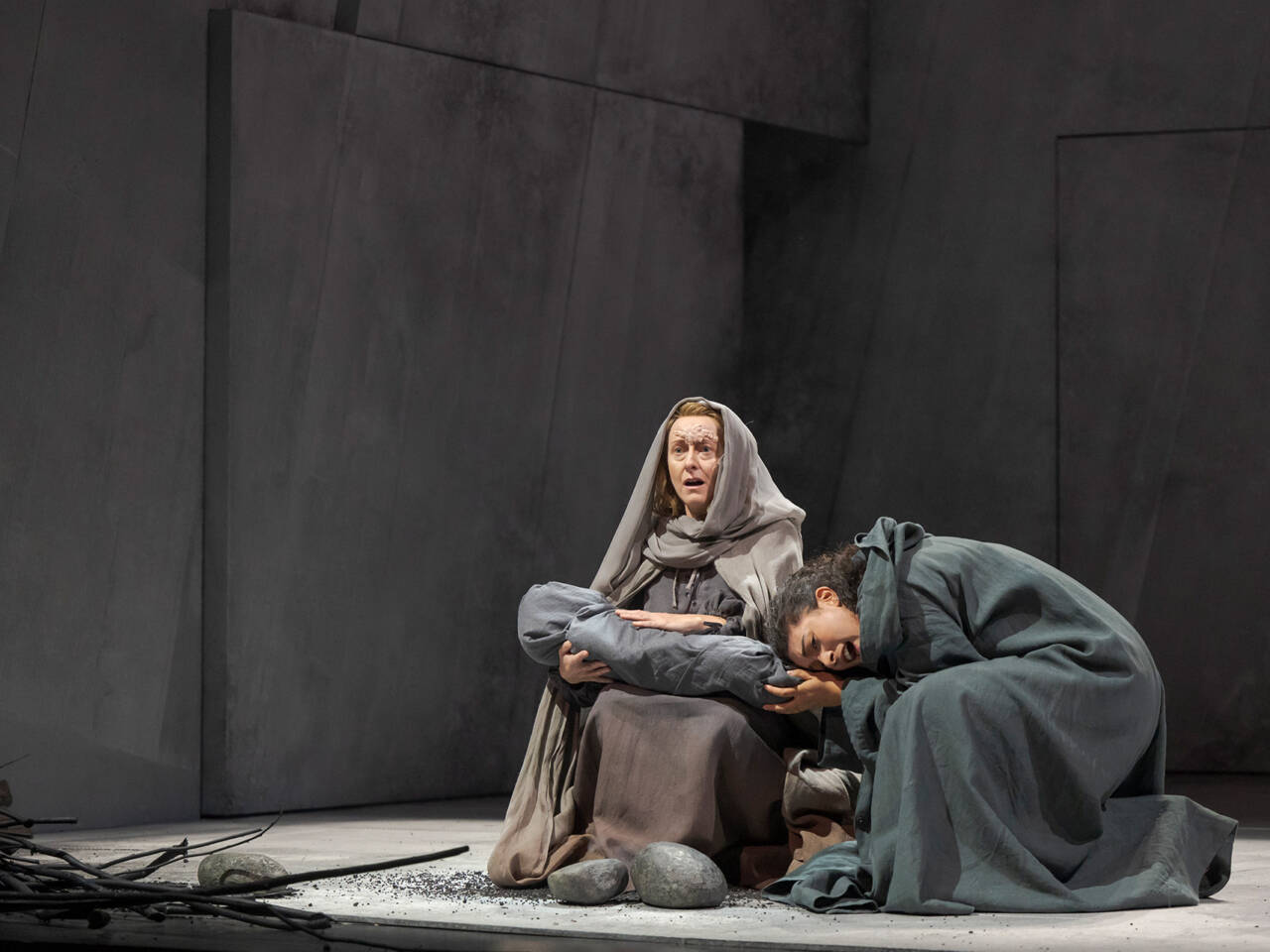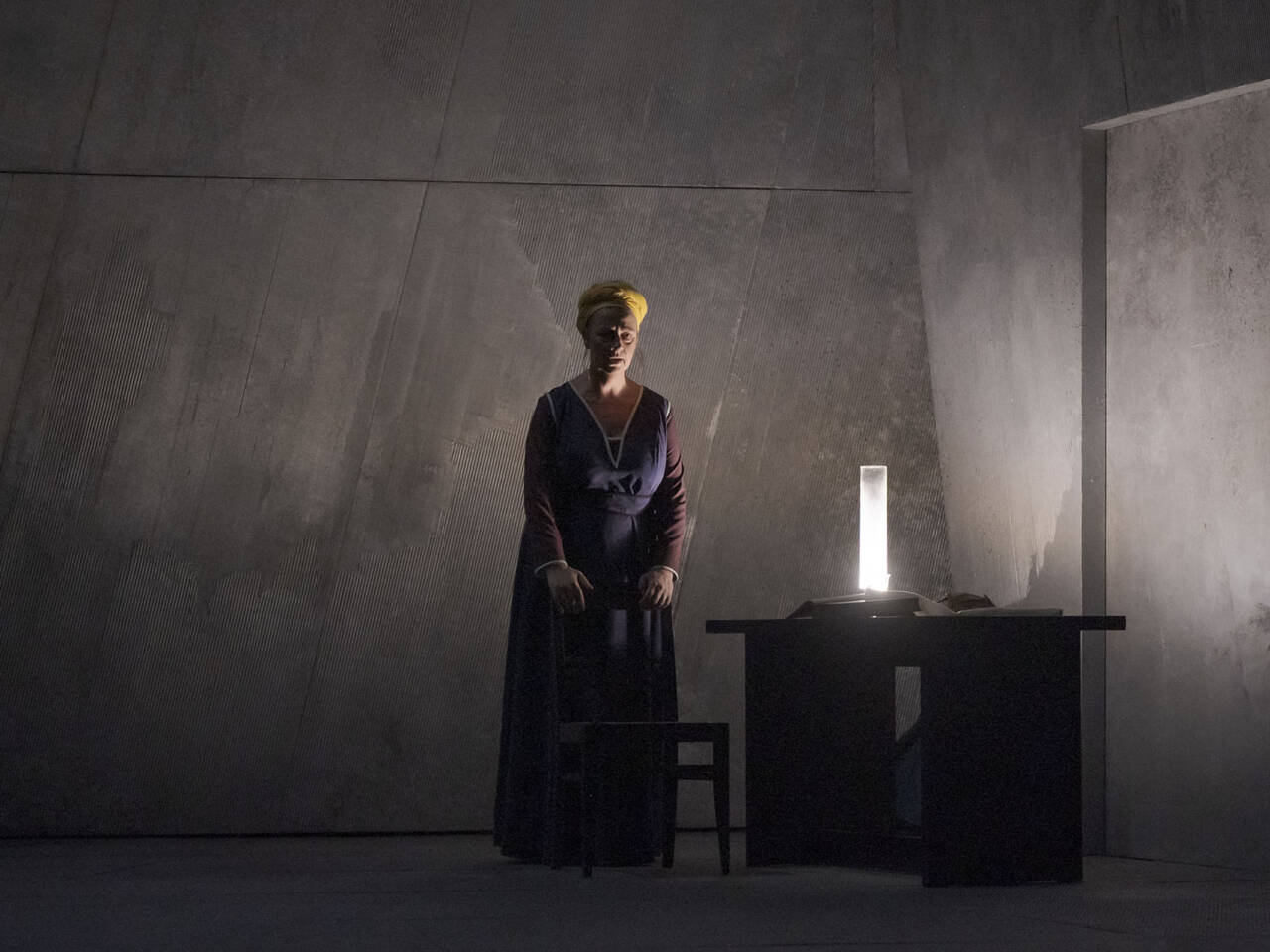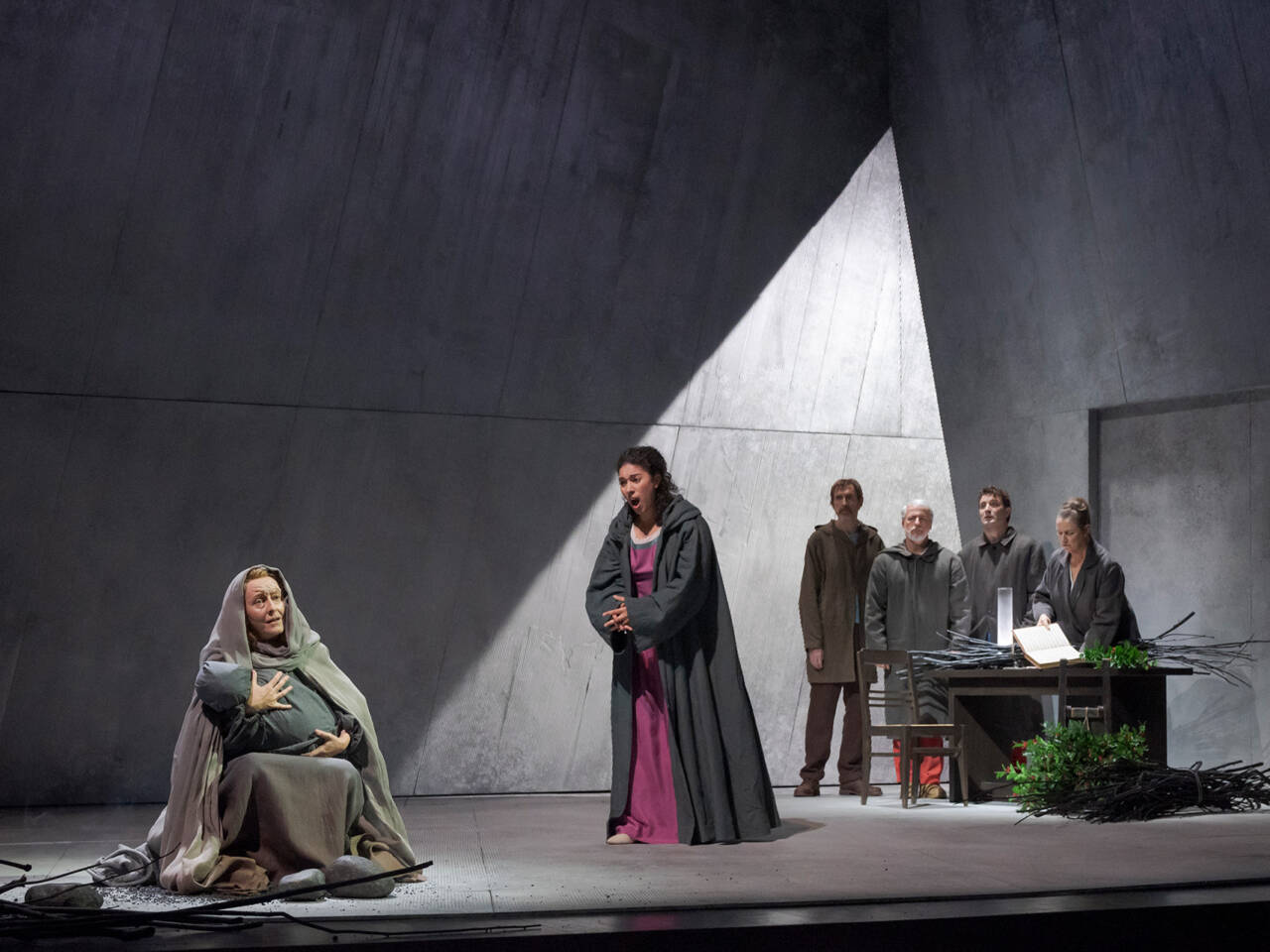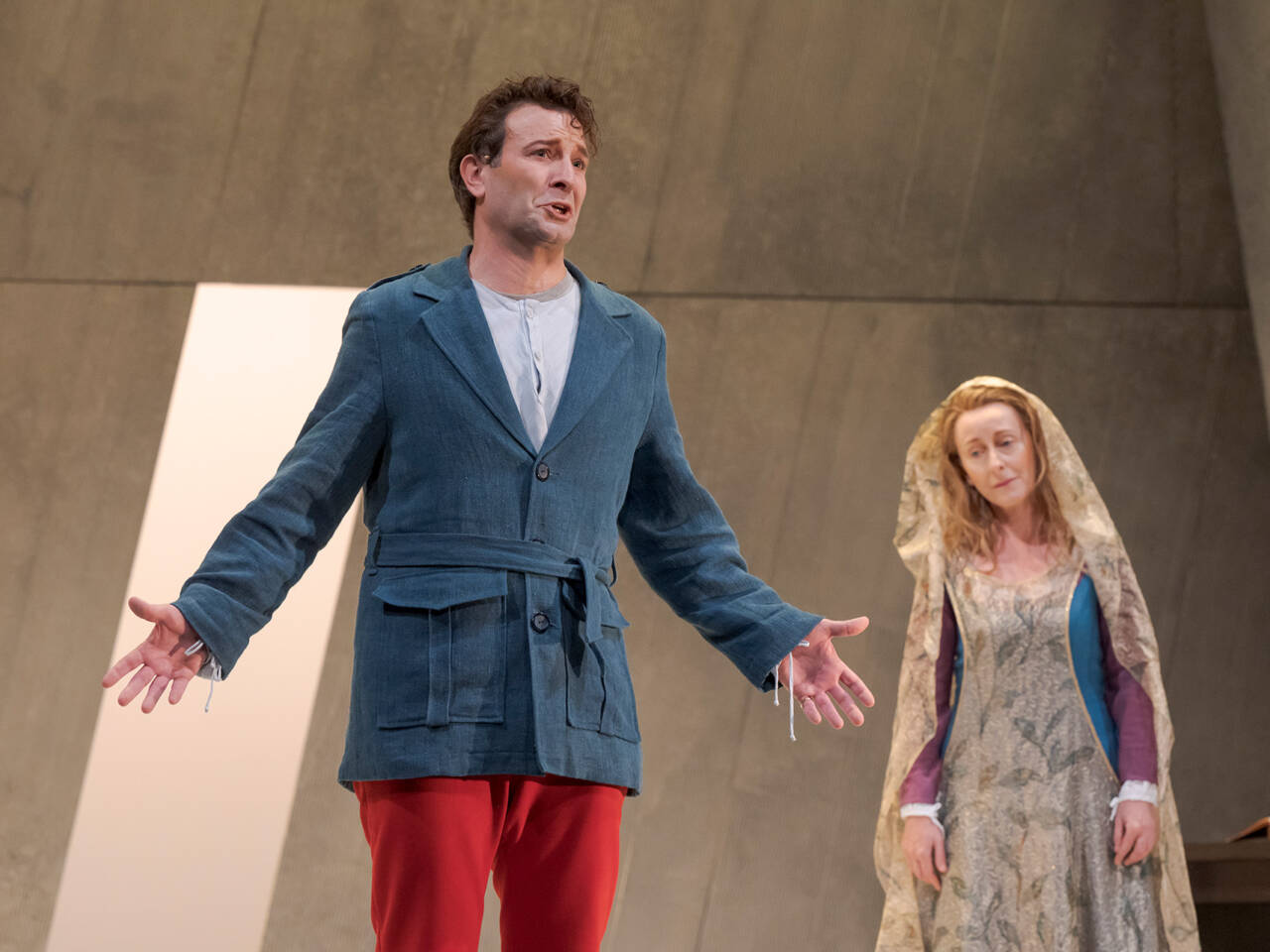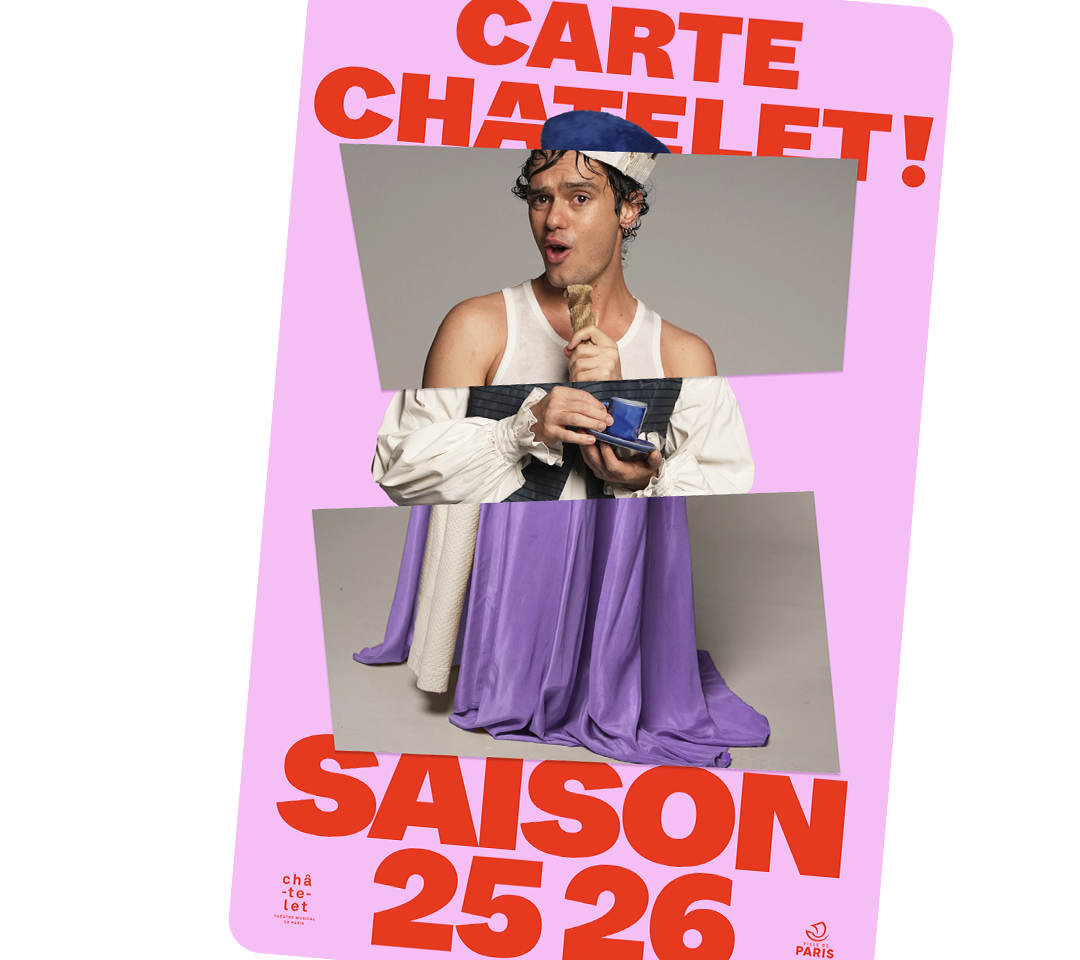Jacques Hury
And you do not deny that this man had you and possessed you?
Violaine
I deny nothing, Jacques.
Paul Claudel, The Tidings Brought to Mary: final version for the stage, English translation by Samuel Young, Act III, Scene 3.
Summarising The Tidings Brought to Mary would be both futile and pointless, because for more than half a century, Paul Claudel lived with his own characters, whom he described — in an interview with La Croix magazine in 1948 as “a handful of disgruntled tenants who populate the basement of my conscience, never giving me peace.” And, as early as 1912, after several years of writing at his desk, the author was already describing his work as “an opera of speech” in a letter to Lugné-Poe. The Tidings Brought to Mary is more than just a tale of a miracle, more than a love story, and more than a study of morals: while it questions both the intimate contradictions of the author, the characters, and the audience, it also challenges amorality, with Claudel arguing, in his exalted text that leaves no one indifferent, that, in and of itself, being Christian does not amount to being a good person.
Through both the music and the staging, Philippe Leroux and Célie Pauthe have brought the author back to the heart of his writings. While one draws on the codes of medieval illumination by placing the opera’s set in a world that blends the sand pits of the Tardenois region with the writer’s studio, the other plays with voices by combining Paul Claudel’s voice, synthesized and projected through loudspeakers, with those of the singers on stage, thanks to a score that restores the full autobiographical dimension of the text. The Tidings Brought to Mary is a “chamber opera” composed for six voices and a mixed music ensemble, where the musicians of the Ensemble intercontemporain are accompanied by electronics. And here, once again, Paul Claudel is never far away: his calligraphy was used to generate rhythm and harmony. Nevertheless, and because the composer is also an opera enthusiast, the vocal music is, at every moment, in the service of the intelligibility of the text.
SECRETS OF A WORK
To find out more about The Tidings Brought to Mary, a presentation of the production will take place 45 minutes before the performance begins, in the Salon Diaghilev. Animated by Aurélien Poidevin, Head of Editorial Content at the Théâtre du Châtelet, on Friday 30 January and Tuesday 3 February 2026, at 7.15 pm (free entry, reserved for ticket holders for that day’s performance).
POST-SHOW CHAT
A post-show chat (a meeting between the artists and the audience to discuss the production) will take place after the performance on Sunday 1 October 2026 (free entry, reserved for ticket holders for that day’s performance).
